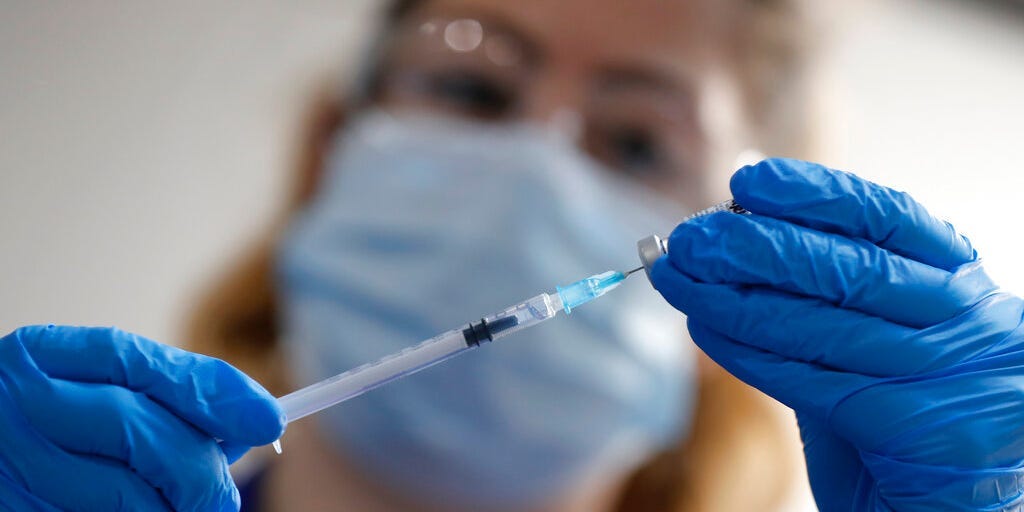
- Pfizer expects to start human studies for an Omicron-tailored COVID-19 vaccine in late January.
- Pfizer's chief scientist Mikael Dolsten told Insider the shot would be ready by late March.
- But it's unclear if the new version would be needed or used. The current shot still works, he said.
Pfizer plans to start human testing for its Omicron variant-specific coronavirus vaccine before the end of January, the drugmaker's top scientist told Insider.
"We're going to test that starting now in late January, when we're rolling out clinical trials comparing Omicron towards the current vaccine," Mikael Dolsten, Pfizer's chief scientific officer, said in a Monday video interview.

The new timeline to entering the clinic with an updated shot comes as the Omicron variant has spread across the world and caused a new surge in infections and hospitalizations. Even as the variant has taken off, Dolsten said it's still unclear if a new shot, tailored to Omicron, would ultimately be needed. Overall, Pfizer's leaders reiterated on Monday the previous timeline of an Omicron-specific shot being ready by late March.
"This vaccine will be ready in March," Pfizer CEO Albert Bourla told CNBC on Monday morning. "I don't know if we will need it. I don't know if it will be used, but it will be ready."
Specifics for this new research are still being finalized with regulators, including how many volunteers will be enrolled and in what countries, a Pfizer spokesperson said.
Existing vaccines still protect against hospitalizations
A key goal of the research will be comparing immune responses between the current vaccine formulation and an updated version tailored to Omicron. The trial will test both formulations given as a fourth dose to study volunteers, a Pfizer spokesperson said.
Dolsten said the current vaccine, developed by Pfizer and the German biotech BioNTech, still provides "really strong protection against hospitalizations" against the Omicron variant. But the current shots are less effective at stopping less severe disease. An updated version of the vaccine may address that reduction, Dolsten said.
"Let's ask the question if the Omicron vaccine reduces illness even more," Dolsten said. "If that's the case, we will consider to roll it out in March, pending the disease is still Omicron by then."
Thinking ahead, Pfizer also plans to work closely with governments in identifying new variants that will emerge in Africa and Asia, Dolsten said. This work would prepare for a potential fifth wave, which Dolsten said could likely come in the fall alongside colder weather. Active surveillance of variants could help Pfizer act even faster in figuring out the best version of its vaccine to use in the future, he said.
